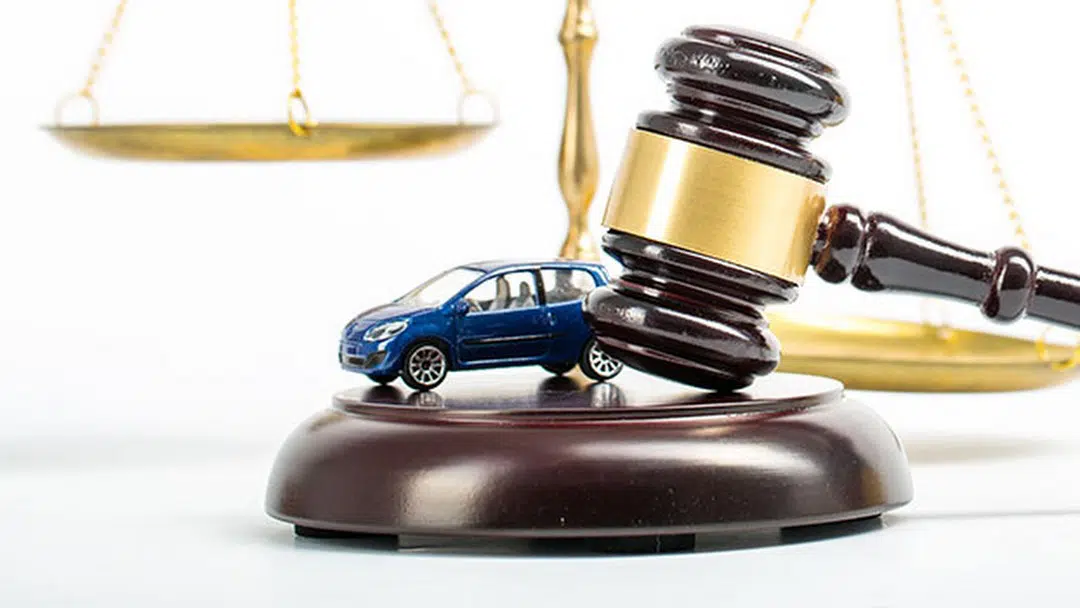Out-of-State Accident Claims: What You Need to Know
“Over the river and through the woods, to Grandmother’s house, we go…” Families across the country will travel again this holiday season, and their journeys may take them away from home and out of state.
Hopefully, the spirit of the season will not be broken by an accident, but if so, it is important to know what next steps to take, now or at any time of the year. In the case of an out-of-state accident, there can be some confusion, especially if it is someone else’s fault. If it includes potentially serious injuries, the victim deserves full compensation.
Here’s some key things to consider:
I’ve Been in an Out-of-State Accident: What Do I Do Now?
Accidents can be concerning and confusing, especially when they happen in unfamiliar territory. No matter where they occur, the procedure following an accident is the same. Follow these steps immediately:
- Check for injuries of all those involved and take action to further their safety as much as possible.
- Call 9-1-1, law enforcement, and emergency services to provide medical help, report the incident, and secure the scene.
- Exchange contact and insurance information with any other drivers involved.
- Document the accident as thoroughly as possible, including taking pictures of any damage. Talk to any witnesses and gather their contact information too.
- Get in touch with your insurance company to report the accident and initiate a claim. Be sure to inform them that the accident has taken place in another state.
- Contact an experienced personal injury and auto accident attorney.
If there is any pain at all, do not wait until returning home to seek medical care. Postponing treatment could make a full recovery more difficult. Immediate medical attention will also document the victim’s condition and help prove that injuries resulted from the accident. This information is important for any insurance claim or possible lawsuit.
Victims of serious accidents may think they need to work with a lawyer from near the site of the accident. Actually, it is perfectly fine to hire a firm from back home. An experienced firm from “back home” like Hipskind & McAninch can handle your case, including out-of-state accident claims.The important thing is to find a trusted expert who will help you get the settlement you deserve.
Far from Home: Am I Covered?
One of the next questions that come to mind with out-of-state accident claims is whether one’s insurance policy covers victims, vehicles, and other affected personal property.
The quick answer to that question is “yes.”
Most insurance policies cover their insured’s journeys in all 50 states and U.S. territories.
Some policies also provide coverage in Canadian provinces, but not necessarily for travel to Mexico and other South American countries. If heading south of the U.S. border, be sure to verify coverage before making the trip.
It is also good to know that coverage limits automatically adjust to meet whatever the minimum requirements are for the state where the accident occurred. This is especially important to know if filing an out-of-state accident claim.
A qualified attorney can guide a victim through a review of their insurance policies and help to thoroughly understand policy coverage and limits, including those that involve out-of-state accident claims, thereby allowing the victim to focus on healing.
Where Do I File My Out-of-State Accident Claim?
Insurance companies often try to get people to settle for less than they deserve. An experienced attorney can negotiate toward a fair settlement, but if that fails, an accident victim may decide to work with the attorney and file a lawsuit.
Generally speaking, injured parties have two choices for filing their out-of-state accident claims. They can file in the state where the accident occurred, or they can choose to file in the state where the defendant lives. With either choice, it can become very complicated, which is exactly why an attorney can be of great help.
Let’s look more closely at this with the following scenario:
Kevin lives in Ohio. For the Christmas holiday, Kevin decides to drive to Illinois to celebrate with his sister and her family. While driving through Indiana, he is struck by Allison, who is discovered to have been texting while driving. Allison lives in Missouri but is visiting family in Indiana.
Kevin has been hurt in the accident and decides to file a personal injury lawsuit against Allison. Kevin can file his lawsuit in Indiana, where the accident occurred. Or he can file his lawsuit in Missouri, where Allison lives. However, Kevin cannot file his lawsuit in Ohio, which is his home state, unless Allison consents to have the case heard there.
Accidents with multiple vehicles or a commercial vehicle add even more confusion to the issue. Luckily, choosing an experienced attorney means that they can best determine which state makes the most sense to file in if the out-of-state claim needs to go to trial. The home attorney, if necessary, can obtain special permission from the other state’s bar to take the case (known as pro hac vice admission).
And Whose Laws Apply?
With out-of-state accident claims, deciding which state to file the lawsuit is one step in the process. Also important is to consider the laws that apply to each state option. Generally, regardless of where a lawsuit is filed, the claim will abide by the laws in the state where the accident occurred. In the previous example, if Kevin filed his car accident claim in Missouri, where the defendant Allison lives, but the accident occurred in Indiana, the laws of Indiana would apply to his case. This includes both the rules of the road and statutes of limitation.
Auto insurance laws in the United States are a state-level decision. States choose to be a no-fault state or a tort liability one. In the United States, there are 12 no-fault states and territories: Florida, Hawaii, Kentucky, Massachusetts, Michigan, Minnesota, North Dakota, New Jersey, New York, Pennsylvania, Utah, and Puerto Rico. This means that no matter who causes an accident, each driver’s insurance takes care of their own damages.
The remaining 38 states, including Illinois and Missouri, are currently tort liability states. In these states, determining who caused an accident is crucial, because the person causing it (and their insurance company) are considered financially responsible for any victim’s injuries and related property damage.
And while Illinois and Missouri are both tort liability states, they still differ.
Missouri follows one of pure comparative negligence, where each party in a car accident pays the portion that they are responsible for. Illinois follows the law of modified comparative negligence. A jury could find each driver 50% at fault and therefore each could recover. But if one is found to be only 30% at fault, their award would be reduced by that amount.
Understanding the differences between these mandates can seem confusing. An experienced personal injury and car accident law firm can best help you navigate the technicalities and legalities of each state’s laws and requirements.
Can My Home-State Attorney Handle My Out-of-State Claim?
Again, the quick answer here is “yes.”
It can be advantageous to have a Belleville Personal injury lawyer in the location where the majority of medical treatment was done. If, for example, a victim is laid up out-of-state while recovering, they may choose to hire an attorney in that state. In most cases, however, victims will return home after their initial emergency treatment. They can absolutely hire someone local to represent them no matter where they heal.
Many people assume that, if they travel and get injured in another state, they will not be able to get a fair settlement unless they hire an attorney from the other state. However, if someone has a “home attorney,” a law firm they have worked with before such as Hipskind & McAninch, it can be more comfortable to work with them again in handling this out-of-state accident claim.
Category:
Tags:
car accident claims, car accident lawyer, illinois, missouri, out-of-state


